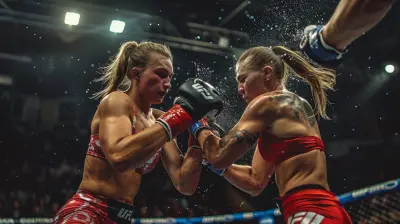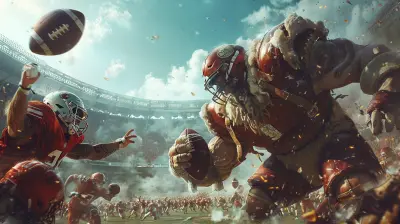The Role of Nutrition in Maximizing Gym Performance
31 May 2025
Hitting the gym regularly? Great! But if you're not paying attention to your nutrition, you might be leaving gains on the table. Think of your body like a high-performance sports car—without the right fuel, it won’t perform at its best. Whether your goal is muscle gain, fat loss, or improving endurance, what you eat plays a massive role in how well you perform during workouts and how quickly you recover afterward.
In this article, we’ll break down the essentials of gym nutrition, the best foods to fuel your workouts, and how to optimize your diet for maximum results. Grab a protein shake and let’s dive in!
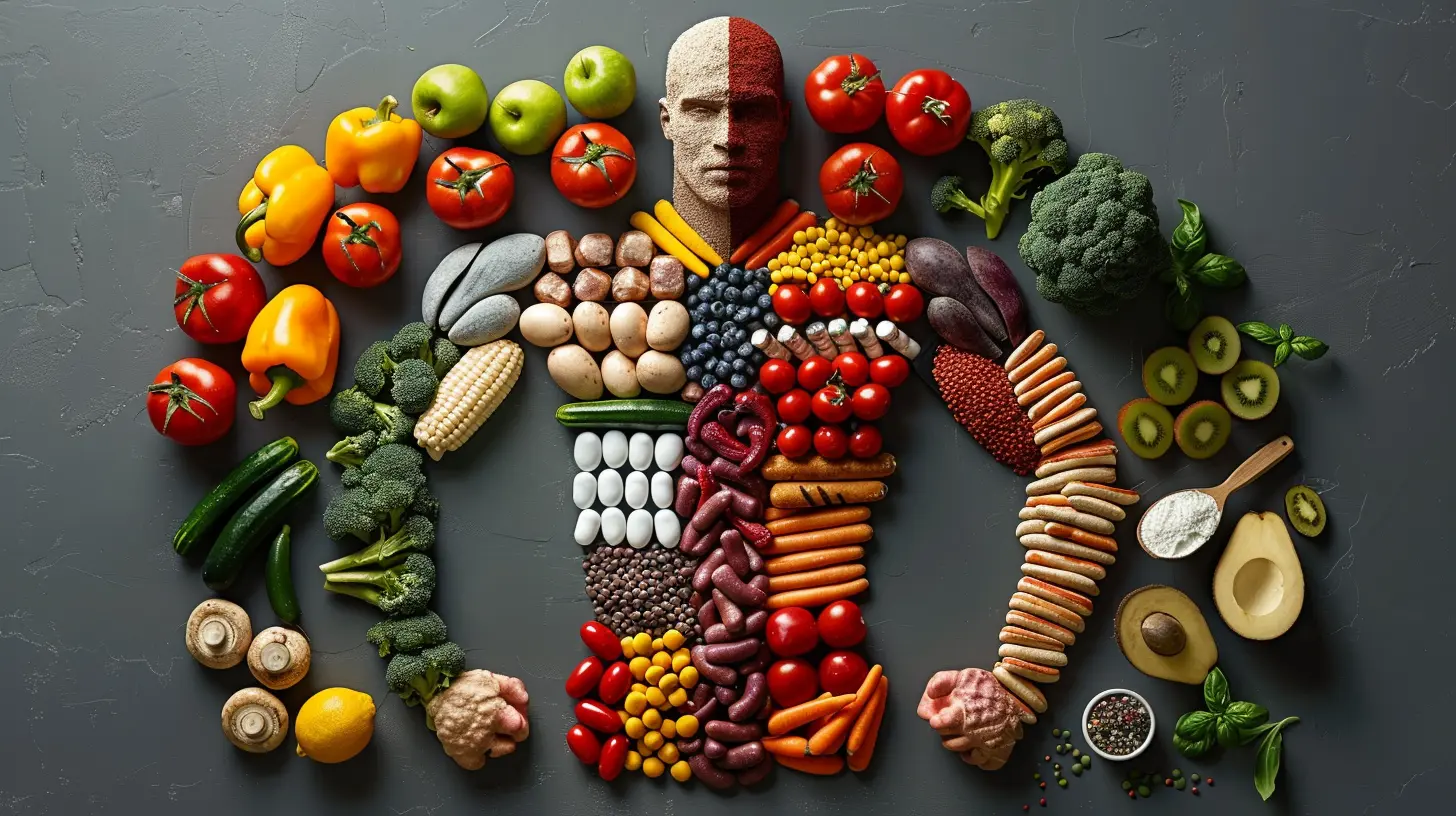
Why Nutrition Matters for Gym Performance
You can't out-train a bad diet—it's as simple as that. Your body needs the right balance of macronutrients, micronutrients, and hydration to function at its best. Proper nutrition helps you:- Boost energy levels for intense workouts
- Support muscle growth and repair
- Enhance endurance and stamina
- Reduce the risk of injuries
- Speed up recovery after tough sessions
If you're skipping meals or eating the wrong foods, you’ll likely feel sluggish, suffer from poor performance, and struggle to see progress. Now, let’s break down what you should be eating to maximize your gym efforts.
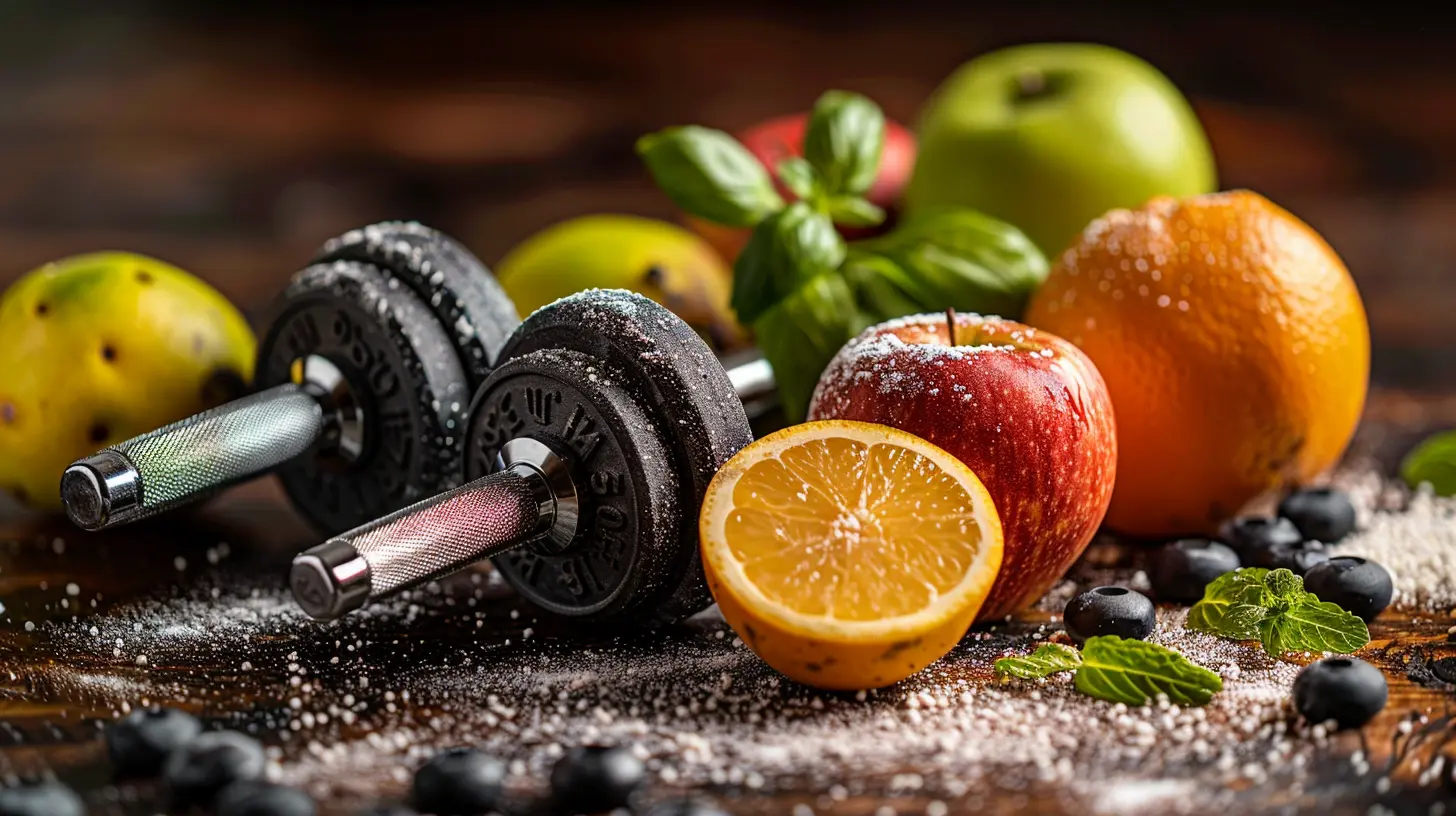
Macronutrients: The Building Blocks of Performance
1. Protein: The Muscle Repair Agent
Protein is the king of muscle-building nutrients. After a tough workout, your muscles need amino acids to repair and grow stronger. Without enough protein, your recovery slows down, and muscle growth becomes harder.Best Protein Sources:
- Lean meats (chicken, turkey, lean beef)- Fish (salmon, tuna, cod)
- Eggs and egg whites
- Dairy (Greek yogurt, cottage cheese)
- Plant-based sources (lentils, beans, tofu, quinoa)
- Whey or plant-based protein powders
Aim for 0.7 to 1.0 grams of protein per pound of body weight daily if you’re serious about muscle growth.
2. Carbohydrates: Your Gym Fuel
Carbs are your body’s primary energy source. They get broken down into glucose, which fuels your muscles during workouts. Skimping on carbs can leave you feeling weak and fatigued, making your gym sessions less effective.Best Carbohydrate Sources:
- Complex carbs (brown rice, quinoa, whole wheat bread, oats)- Fruits (bananas, berries, apples)
- Vegetables (sweet potatoes, leafy greens, carrots)
- Legumes (beans, lentils, chickpeas)
For optimal performance, consume more carbs around your workout times—before for energy and after to replenish glycogen stores.
3. Healthy Fats: The Unsung Hero
Fats often get a bad reputation, but they play a crucial role in hormone production, joint health, and overall energy levels. The key is choosing the right fats.Best Fat Sources:
- Avocados- Nuts (almonds, walnuts, cashews)
- Seeds (chia, flax, pumpkin)
- Fatty fish (salmon, mackerel)
- Olive oil and coconut oil
Healthy fats support muscle recovery and help keep energy levels stable. Just don’t overdo it—fats are calorie-dense, so a little goes a long way!

Pre-Workout Nutrition: What to Eat Before Exercising
Ever tried working out on an empty stomach? Not fun, right? A solid pre-workout meal ensures you have the energy to push through your session without feeling sluggish.Best Pre-Workout Foods:
- A banana with peanut butter- Oatmeal with berries
- Greek yogurt with honey and granola
- Whole wheat toast with eggs
- A protein smoothie with oats
Try to eat 30-60 minutes before your workout to give your body time to digest and absorb the nutrients.
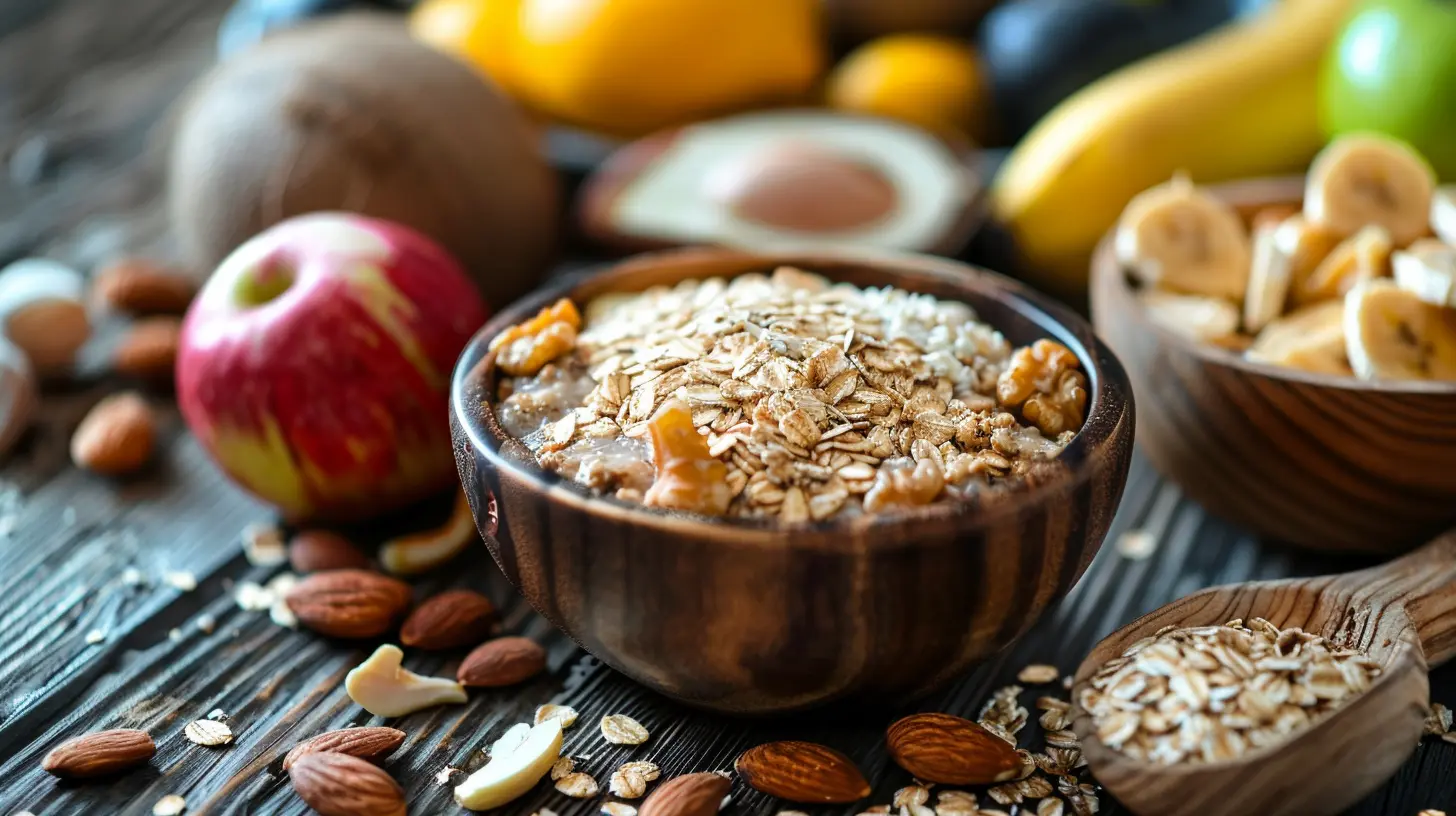
Post-Workout Nutrition: Maximizing Recovery
Your muscles are like sponges after a workout, eager to soak up nutrients for repair and growth. That’s why post-workout nutrition is so important!Best Post-Workout Foods:
- Grilled chicken with brown rice and veggies- A protein shake with banana and almond milk
- Salmon with quinoa and roasted vegetables
- Scrambled eggs with whole wheat toast
- Cottage cheese with berries and nuts
Make sure you get a mix of protein and carbs within 30-60 minutes post-workout to kickstart recovery!
Hydration: The Overlooked Factor
Water is often forgotten when talking about gym nutrition, but staying hydrated is non-negotiable. Dehydration can lead to muscle cramps, dizziness, and decreased performance.Hydration Tips:
- Drink water throughout the day, not just before and after workouts.- Aim for at least 3-4 liters (100-135 oz) of water daily, depending on your activity level.
- Electrolytes matter too! If you're sweating a lot, consider adding some salt or drinking electrolyte-rich beverages.
If your urine is dark yellow, you're not drinking enough—keep that water bottle handy!
Supplements: Do You Really Need Them?
Supplements are exactly that—supplements to a solid diet. They can be helpful but aren’t necessary if you're getting enough nutrients from whole foods.Useful Gym Supplements:
- Protein Powder – Quick and convenient way to hit your protein goals- Creatine Monohydrate – Increases strength, muscle mass, and recovery
- BCAAs (Branched-Chain Amino Acids) – Helps reduce muscle soreness
- Pre-Workout – Provides an energy boost before training
- Fish Oil – Supports joint health and reduces inflammation
If you have your nutrition on point, supplements can give you that extra edge—but don’t rely on them to fix a poor diet!
Meal Timing: Does It Really Matter?
Ever heard of the anabolic window? It’s the idea that you need to eat protein immediately after a workout for muscle growth. While it’s somewhat true, what matters more is your total daily intake of nutrients.That said, eating at the right times can improve performance and recovery:
- Eat every 3-4 hours to maintain energy levels and muscle protein synthesis.
- Consume protein before bed (casein protein, cottage cheese) to support overnight recovery.
- Times your carbs around workouts for sustained energy and replenishment.
Rather than stressing about the perfect meal timing, focus on consistency and quality food choices throughout the day.
The Bottom Line
Maximizing gym performance isn’t just about lifting heavy and pushing hard—it starts in the kitchen. The right balance of protein, carbs, and fats, along with proper hydration and strategic meal timing, can make a world of difference in your workouts and recovery.So, the next time you hit the gym, remember: what you put on your plate is just as important as what you lift!
all images in this post were generated using AI tools
Category:
Gym TrainingAuthor:

Preston Wilkins
Discussion
rate this article
2 comments
Gunner Walker
Great article! It's amazing how much of a difference nutrition can make in our workouts. I used to overlook it, but once I started fueling my body properly, I noticed a huge boost in my energy and performance. Thanks for the insights!
June 16, 2025 at 11:24 AM

Preston Wilkins
Thank you for your kind words! It's great to hear how nutrition has positively impacted your workouts. Fueling our bodies properly truly makes a significant difference!
Nix McAuley
Great article! It's so true that nutrition plays a crucial role in enhancing gym performance. Fueling our bodies with the right nutrients not only boosts energy but also aids recovery. Thanks for shedding light on this important aspect of training!
June 11, 2025 at 10:56 AM

Preston Wilkins
Thank you for your kind words! I'm glad you found the article helpful in understanding the impact of nutrition on gym performance.
